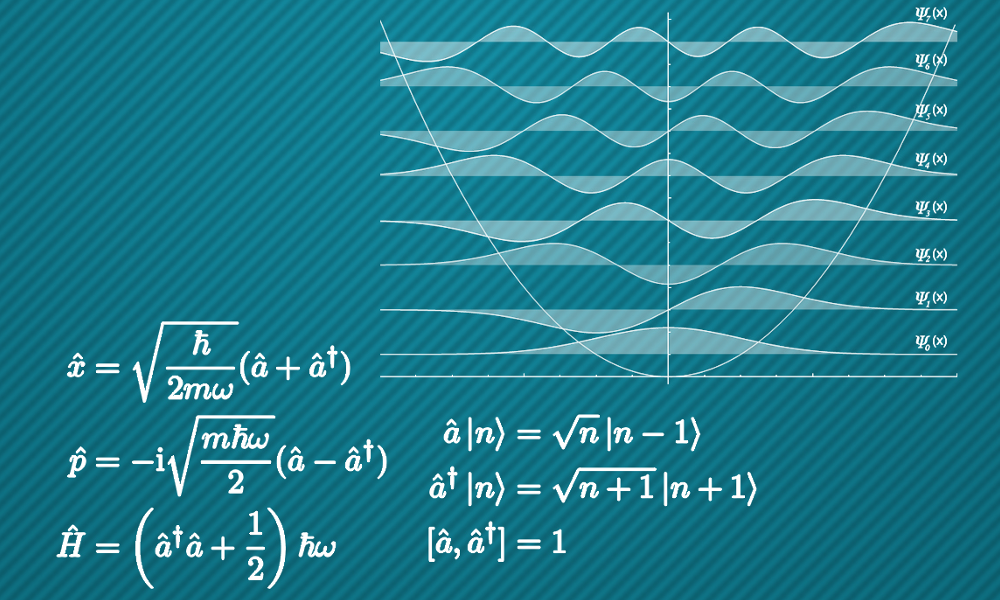数二进制表示中有多少1的算法
最早在邓公的数据结构书上看到, 当时只是觉得很有趣, 没想到竟然会要用上, 于是来记一笔:
先说用途: Heat Bath Algorithmic Cooling 中, 有一个步骤是把 \(n\) 个 qubit 扔到热库中变成热平衡. 此时得到的密度矩阵矩阵是对角的, 对角元 \((1+\varepsilon)^i(1-\varepsilon)^{n-i}\) 其中 \(i\) 为对应的态中处于基态的 qubit 数目: 恰好为矩阵行数\列数在二进制表示下 0 的数目.
算法有个名称叫做 Hamming weight, 以下程序摘抄自 Wiki
\\types and constants used in the functions below
const uint64_t m1 = 0x5555555555555555; \\binary: 0101...
const uint64_t m2 = 0x3333333333333333; \\binary: 00110011..
const uint64_t m4 = 0x0f0f0f0f0f0f0f0f; \\binary: 4 zeros, 4 ones ...
const uint64_t m8 = 0x00ff00ff00ff00ff; \\binary: 8 zeros, 8 ones ...
const uint64_t m16 = 0x0000ffff0000ffff; \\binary: 16 zeros, 16 ones ...
const uint64_t m32 = 0x00000000ffffffff; \\binary: 32 zeros, 32 ones
const uint64_t hff = 0xffffffffffffffff; \\binary: all ones
const uint64_t h01 = 0x0101010101010101; \\the sum of 256 to the power of 0,1,2,3...
\\This is a naive implementation, shown for comparison,
\\and to help in understanding the better functions.
\\It uses 24 arithmetic operations (shift, add, and).
int popcount_1(uint64_t x) {
x = (x & m1 ) + ((x >> 1) & m1 ); \\put count of each 2 bits into those 2 bits
x = (x & m2 ) + ((x >> 2) & m2 ); \\put count of each 4 bits into those 4 bits
x = (x & m4 ) + ((x >> 4) & m4 ); \\put count of each 8 bits into those 8 bits
x = (x & m8 ) + ((x >> 8) & m8 ); \\put count of each 16 bits into those 16 bits
x = (x & m16) + ((x >> 16) & m16); \\put count of each 32 bits into those 32 bits
x = (x & m32) + ((x >> 32) & m32); \\put count of each 64 bits into those 64 bits
return x;
}
\\This uses fewer arithmetic operations than any other known
\\implementation on machines with slow multiplication.
\\It uses 17 arithmetic operations.
int popcount_2(uint64_t x) {
x -= (x >> 1) & m1; \\put count of each 2 bits into those 2 bits
x = (x & m2) + ((x >> 2) & m2); \\put count of each 4 bits into those 4 bits
x = (x + (x >> 4)) & m4; \\put count of each 8 bits into those 8 bits
x += x >> 8; \\put count of each 16 bits into their lowest 8 bits
x += x >> 16; \\put count of each 32 bits into their lowest 8 bits
x += x >> 32; \\put count of each 64 bits into their lowest 8 bits
return x & 0x7f;
}
\\This uses fewer arithmetic operations than any other known
\\implementation on machines with fast multiplication.
\\It uses 12 arithmetic operations, one of which is a multiply.
int popcount_3(uint64_t x) {
x -= (x >> 1) & m1; \\put count of each 2 bits into those 2 bits
x = (x & m2) + ((x >> 2) & m2); \\put count of each 4 bits into those 4 bits
x = (x + (x >> 4)) & m4; \\put count of each 8 bits into those 8 bits
return (x * h01)>>56; \\returns left 8 bits of x + (x<<8) + (x<<16) + (x<<24) + ...
}
<\code><\pre>
